I’m torn when it comes to Crazy Rich Asians: I absolutely hate romantic comedies, but I’m a huge proponent of ethnic inclusivity. So while I wholeheartedly applaud the fact that a film with an entirely Asian cast was able to take the top spot at the box-office this week, I also feel compelled to point out that it’s not a particularly good movie. Crazy Rich Asians is a film that I agree with in principle but can’t fully support in practice, the rom-com equivalent of Mickey Rooney in Breakfast at Tiffany’s (1961) or Paul Muni in The Good Earth (1937) — something very white dressed up to look Asian.
Before readers accuse me of protesting too much, consider this: Nina Jacobson and Brad Simpson, the 100 percent white duo behind the production company responsible for Crazy Rich Asians, are also in the process of producing a film with a majority black cast and crew. This could be viewed one of two ways depending on your degree of cynicism — either Jacobson and Simpson legitimately recognize the necessity of diversifying Hollywood and want to further that agenda on moral grounds, or they’re replicating the exploitative business model of the so-called race films prominent from the earliest days of commercial cinematic exhibition until the desegregation of theaters in the ’50s. For those unfamiliar, race films were movies designed to appeal to minority audiences barred from segregated theaters, commonly financed by — and therefore primarily benefiting — the very people who kept those theaters exclusively white.
Speculation on producorial motives aside, Crazy Rich Asians is definitely a step in the right direction as far as representation is concerned. Its fish-out-of-water narrative, based on Kevin Kwan’s best-selling novel of the same name, highlights Chinese culture and familial traditions and was co-scripted by Malaysian-born TV writer Adele Lim. The cast includes Chinese superstar Michelle Yeoh, the protagonist is played by American-born actress of Taiwanese descent Constance Wu, her love interest by Malaysian-born Henry Golding, and her quirky sidekick by Chinese/Korean-American rapper and actress Awkwafina. The film is directed by Chinese-American filmmaker John M. Chu. It’s the first successful studio-funded film boasting a primarily Asian cast to come out of Hollywood since 1993’s The Joy Luck Club, and I think we can all agree that 25 years is far too long between such films. These are all good things.
But they’re not uniformly good things, at least once you look beneath the surface. Kwan’s story as presented here is little more than Cinderella in Singapore, with the novel’s extensive cultural context stripped away by the script’s primary author, The Proposal (2009) scribe and noted white guy Peter Chiarelli. Every song on the soundtrack seems to be a Western pop hit rerecorded with Chinese lyrics. Chu, previously best-known for helming two Step Up sequels and a Justin Bieber doc, looks as if he’s trying to direct a feature-length pilot for a reboot of MTV’s Cribs rather than an actual movie. Of that entirely Asian cast, approximately 95 percent speak with British or American accents. The entire thing comes across as being designed to make white Americans feel more worldly without actually exposing them to an outside culture, unless that intended culture is not so much the “Asian” as the “Crazy Rich” part of the title.
None of this negates the fact that the financial windfall of Crazy Rich Asians is a watershed moment in the racial integration of mainstream cinema, and the potential impact of its success on future Hollywood opportunities for nonwhite filmmakers is a wonderful thing that should be supported. But it also doesn’t negate the fact that Crazy Rich Asians is a bad film on the merits of its derivative script, anemic storytelling and exaggerated direction. While the cast performs admirably, the actors can’t single-handedly overcome the movie’s myriad deficiencies. I’m clearly not the target audience for this film — my tween nieces will undoubtedly love it from an adolescent wish-fulfillment perspective — so your mileage may vary, and I certainly hope it does.
But for those inured to the tired tropes of ham-fisted rom-coms, Crazy Rich Asians represents a cultural step forward and a cinematic step back. At one point in the film, Awkwafina’s character refers to Wu’s as a “banana,” an epithet describing Westernized Asians explained by the film as meaning “yellow on the outside, white inside.” Crazy Rich Asians, as a film, is more like a Twinkie — same principle, but devoid of the suggestion of any real sustenance. Rated PG-13. Now showing at Carolina Cinemark, Regal Biltmore Grande Stadium, AMC River Hills 10.



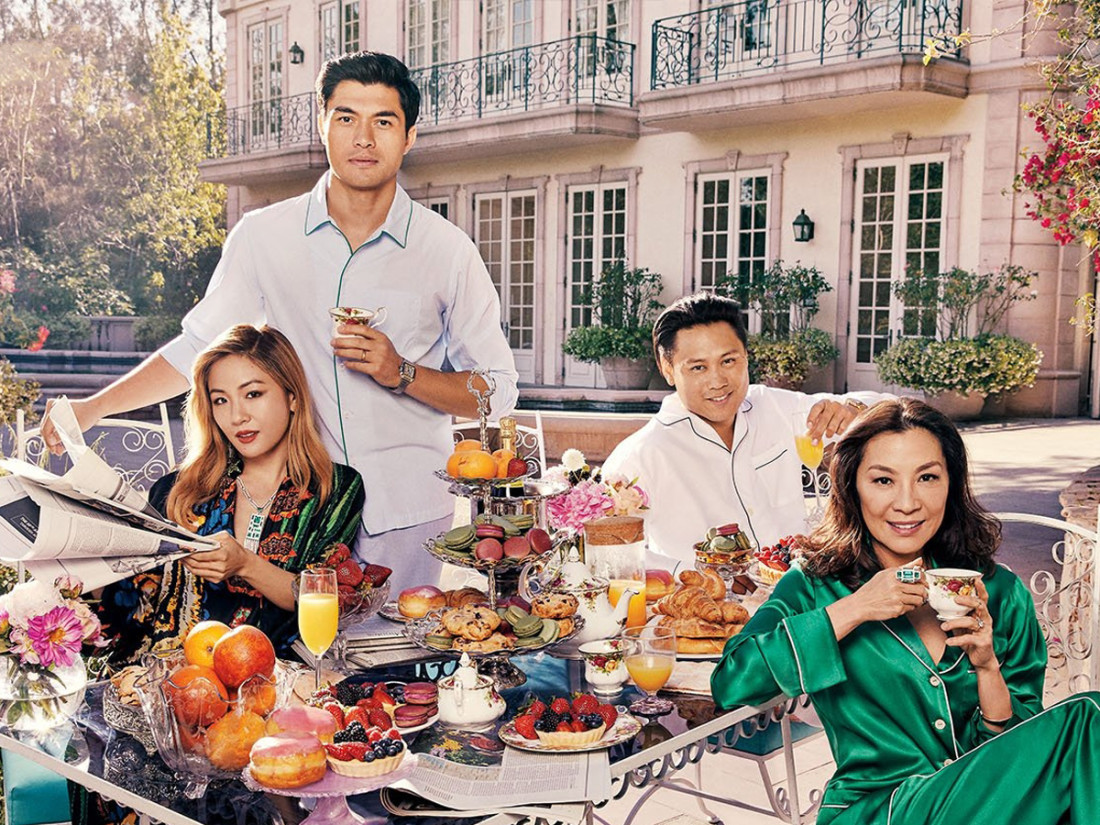

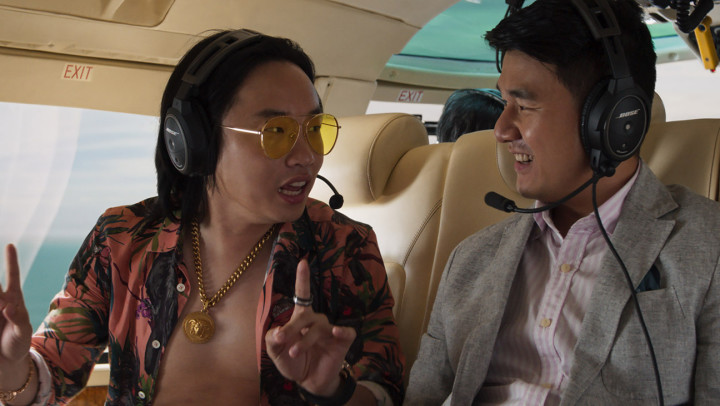
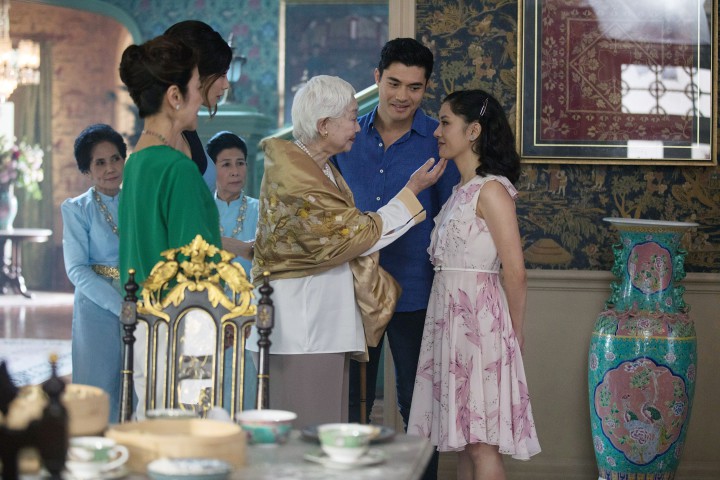
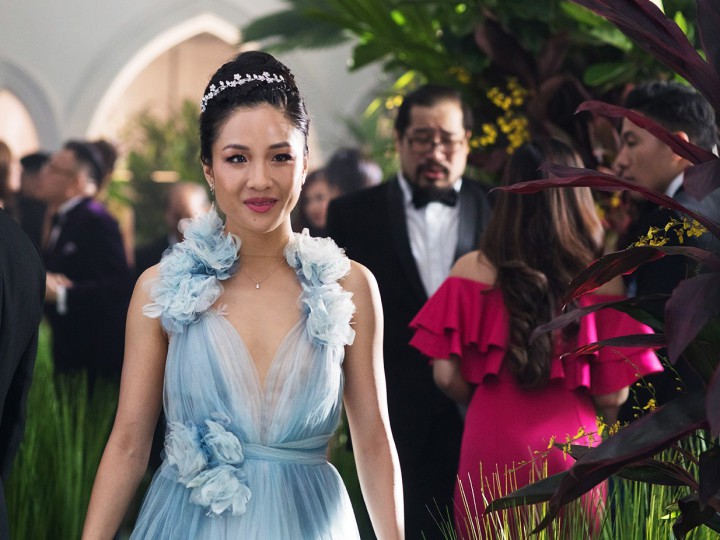
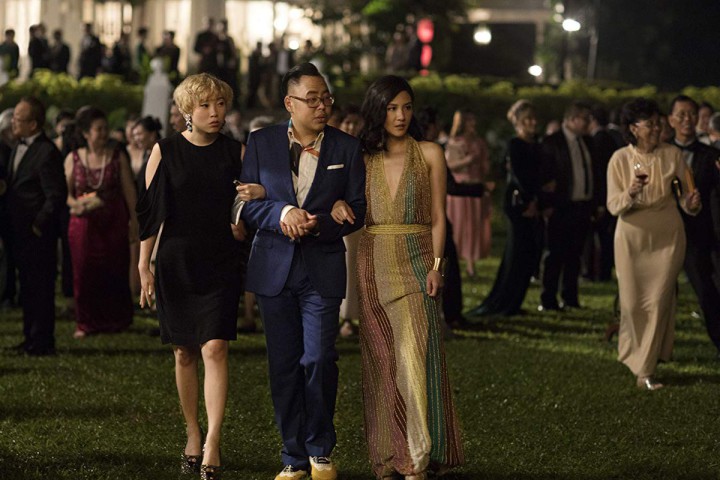
Before you comment
The comments section is here to provide a platform for civil dialogue on the issues we face together as a local community. Xpress is committed to offering this platform for all voices, but when the tone of the discussion gets nasty or strays off topic, we believe many people choose not to participate. Xpress editors are determined to moderate comments to ensure a constructive interchange is maintained. All comments judged not to be in keeping with the spirit of civil discourse will be removed and repeat violators will be banned. See here for our terms of service. Thank you for being part of this effort to promote respectful discussion.